Time management and stress: a study with young workers in the tourism sector in Holguin
DOI:
https://doi.org/10.25057/21452776.1212Keywords:
time management, stress, ability, mental health, human developmentAbstract
Several researches with different groups of subjects link the time management and stress as object of their researches. In Cuba there are few investigations on the problem, therefore, deepening the study of this relationship is the focus of this work. Therefore, the objective of this study is to characterize the time management of young workers in the tourism sector who present symptoms of stress. The investigation is based on a qualitative methodology and the multiple case study was the methodological strategy implemented with four young people of both sexes. The following techniques were used to collect information: interview, daily life stress inventory, cake and composition. The theoretical methodological reflections were carried out using as units of analysis: the time management in the life as a general skill of personal development and stress. The most relevant results indicate that the subjects present symptoms of stress due to difficulties in the time management, focusing their time fundamentally on work, based on a poor capacity for reflection and assessment as to what the time management of life implies and entails. It is observed that the time management tends to be reproductive and routine, product of a stereotyped learning process in early stages and the current uncritical familiarity about this ability.
Author Biographies
Carlos Manuel Osorio García, Universidad de Holguín, Holguín, Cuba
Máster en Trabajo Social, Universidad de Camagüey, Cuba. Departamento de Psicología, Universidad de Holguín, Holguín, Cuba
Zaily Leticia Velázquez Martínez, Universidad de Holguín, Holguín, Cuba
Máster en Dirección, Universidad de Holguín, Cuba. Departamento de Psicología, Universidad de Holguín, Holguín, Cuba
Claudia Tapia Reyes, Universidad de Holguín, Holguín, Cuba
Licenciada en Psicología, Universidad de Holguín, Cuba
References
Barberá, J., Fuentes, M. (2017). La gestión del tiempo periescolar en la Educación Secundaria Obligatoria. Cómo se gestiona el tiempo periescolar el alumnado de ESO y su repercusión en el rendimiento académico (Col. Cuadernos de Psicología 06). La Laguna, Tenerife: Latina.
Basso, C., Graf, L., Lima, F., Schmidt, B., Bardagi, M. (2013). Organização de tempo e métodos de estudo: Oficinas com estudantes universitários. Revista Brasileira de Orientação Profissional, 14(2), 277-288. Recuperado de: http://pepsic.bvsalud.org/scielo.php?script=sci_arttext&pid=S1679-33902013000200012
Bond, M., Feather, N. (1988). Some correlates of structure and purpose in the use of time. Journal of Personality and Social Psychology, 55(2), 321-329. Recuperado de: http://dx.doi.org/10.1037//0022-3514.55.2.321
Bondan, A., Bardagi, M. (2008). Comprometimento profissional e estressores percebidos por graduandos regulares e tecnológicos. Paidéia, 18(41), 581-590. Recuperado de: http://www.scielo.br/scielo.php?pid=S0103-863X2008000300013&script=sci_abstract&tlng=pt
Britton, B. K., Tesser, A. (1991). Effects of time-management practices on college grades. Journal of Educational Psychology, 83, 405-410. Recuperado de: https://www.researchgate.net/profile/Abraham_Tesser/publication/232573913_Effects_of_Time-Management_Practices_on_College_Grades/links/0046353545613de89d000000/Effects-of-Time-Management-Practices-on-College-Grades.pdf
Claessen, B., Van Eerde, W., Rutte, C.G., Roe, R.A. (2007). A review of the time management literature. Personnel Review, 36(2), 255-276.
Costa, A., Polak, C. (2009). Construção e Validação de Instrumento para Avaliação de Estresse em Estudantes de Enfermagem. Rev. Esc. Enferm. USP, 43 (Esp.), 1017-1026. Recuperado de: http://www.scielo.br/scielo.php?script=sci_arttext&pid=S0080-62342009000500005
Chacón, M., Grau, J., Reyes, M. (2012). Prevención y control del stress laboral y el desgaste. Guía para profesionales que trabajan con enfermos crónicos avanzados. La Habana: Editorial Ciencias Médicas.
De Sousa, E., De Oliveira, E., Clark, C. (2003). Avaliação do estresse e das habilidades sociais na experiência acadêmica de estudantes de medicina de uma universidade do Rio de Janeiro. Interação em Psicologia, 7(2), 43-51. Recuperado de: http://www.scielo.br/scielo.php?pid=S1414-98932016000100224&script=sci_abstract&tlng=pt.
Fariñas, G. (2004). Maestro, para una didáctica del aprender a aprender. La Habana: Pueblo y Educación.
González, F., Mitjans, A. (1999). La personalidad: su educación y desarrollo. La Habana: Editorial Pueblo y Educación. (3ra edición)
Liu, O., Rijmen, F., MacCann, C., Roberts, R. (2009). The assessment of time management in middle-school students. Personality and Individual Differences, 47(3), 174-179. Recuperado de: http://dx.doi.org/10.1016/j.paid.2009.02.018
Macan, T.H., Shahani, C., Dipboye, R.L., Philips, A.P. (1990). College students' time management: correlations with academic performance and stress. Journal of Educational Psychology, 82, 760-768. Recuperado de: https://www.google.com.cu/url?sa=t&rct=j&q=&esrc=s&source=web&cd=1&cad=rja&uact=8&ved=2ahUKEwif_pbWpLfhAhUmuVkKHXAmAGoQFjAAegQIAhAC&url=https%3A%2F%2Fpdfs.semanticscholar.org%2Fea72%2F13c01261e9e172f1c362be3781df30f6f5b7.pdf&usg=AOvVaw0GrcfjNoXFgAK8S5ZRWD-4
Misra, R., McKean, M. (2000). College student’s academic stress and its relation to their anxiety, time management and leisure satisfaction. American Journal of Health Studies, 16, 41 -51. Recuperado de: https://www.researchgate.net/publication/209835950_College_students%27academic_stress_and_its_relation_to_their_anxiety_time_management_and_leisure_satisfaction
Peña, Y. (2017). Estudio de la organización del tiempo en maestros jóvenes que presentan síntomas de estrés. (Tesis de licenciatura inédita). Universidad de Holguín, Holguín, Cuba.
Pereira, M., Barbosa, M., Teixeira, R., de Oliveira, E., Rezende, J. (2014). Sofrimento Psíquico. Percepção dos estudantes de medicina e a forma como lidam com a situação. 3er Congreso Ibero-americano de Investigación Cualitativa. Volumen 3. pp. 160-167. Recuperado de: https://proceedings.ciaiq.org/index.php/CIAIQ/article/view/456.
Pérez, R. (1989). Estudio acerca de la perspectiva temporal futura en una muestra de jóvenes preuniversitarios cubanos. (Tesis de licenciatura inédita). Universidad de La Habana, La Habana, Cuba.
Ratner, C. (2013). Desde Vygotski a la Psicología Macrocultural. Obras escogidas. España: Documenta Universitaria.
Rodríguez, G., Gil, J., García, E. (2004). Metodología de la investigación cualitativa. La Habana: Editorial Félix Varela.
Suárez, L. (2007). Un acercamiento al desempeño profesional de los maestros de la enseñanza primaria. (Tesis de licenciatura inédita). Universidad de la Habana, La Habana, Cuba.
Zaldívar, D. (2002). El stress en directivos. Técnicas para su afrontamiento y reducción. Selección de lecturas. Material de estudio. Facultad de Psicología. Universidad de la Habana.
How to Cite
Downloads
Languages:
esDownloads
Published
Issue
Section
License
Copyright (c) 2019 Institución Universitaria de Envigado

This work is licensed under a Creative Commons Attribution-NonCommercial-ShareAlike 4.0 International License.

| Article metrics | |
|---|---|
| Abstract views | |
| Galley vies | |
| PDF Views | |
| HTML views | |
| Other views | |




